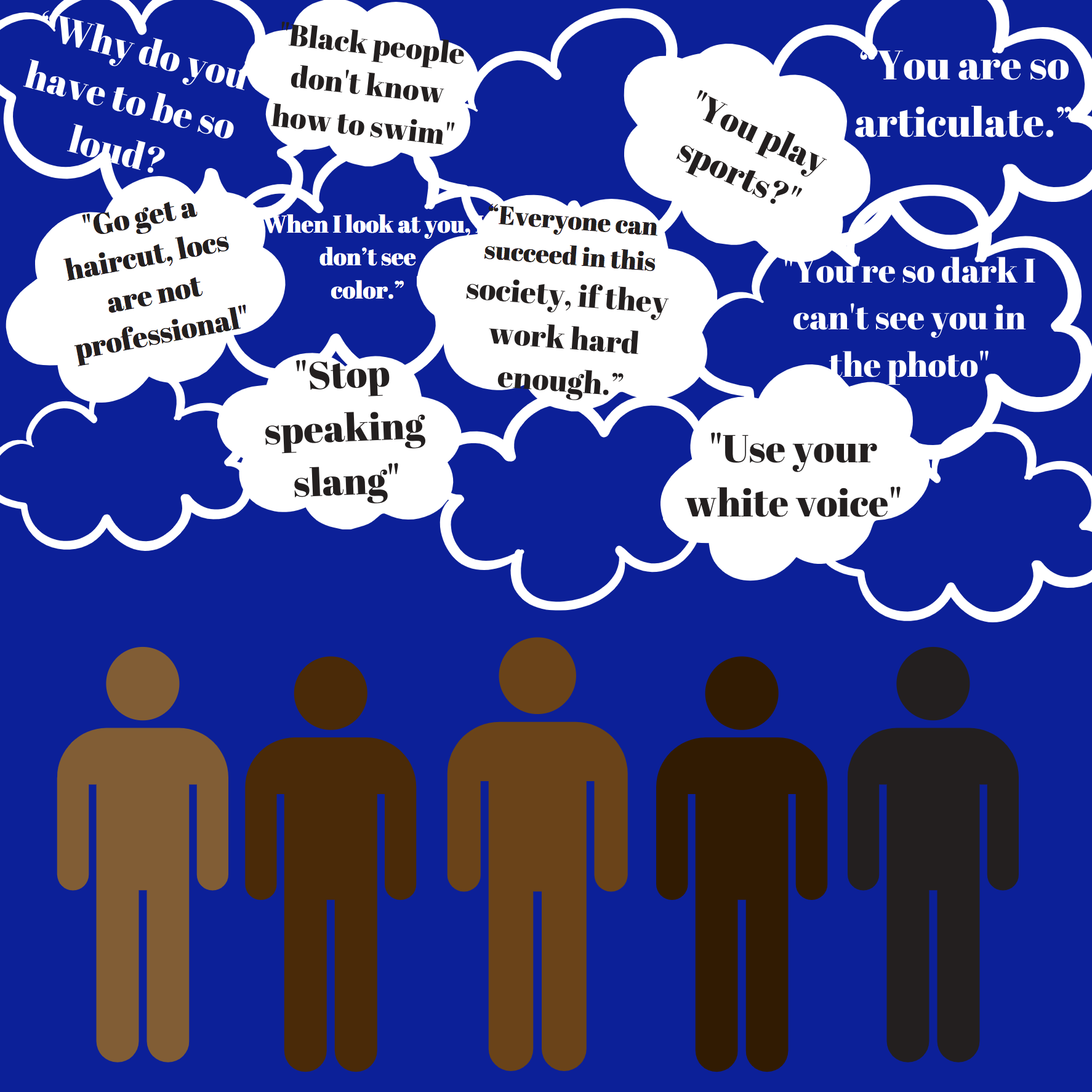Column: A black voice on 'post-racial' America
Racism.
The topic is avoided like the plague even though it continues to haunts marginalized individuals, like me, today.
I can’t avoid it, so why should you?
“Speak proper English; put on a suit; cut your hair,” they said.
“Don’t dap your boys up, answer the phone with your white voice.”
And my personal favorite: “It was a good decision your parents didn’t give you a black name, it was in your best interest.”
I have been told this by television, managers, strangers and even people close to me, directly and indirectly.
My whole life I was programmed on what was acceptable for a black person in our society. I later realized it was systematic oppression used to control me and my blackness.
I have experienced countless racial slurs, micro-aggressions and prejudices that I wouldn’t wish on my worst enemy. What some people don’t realize is that these acts also take place in our economy, education and prison systems, to name a few.
The oppression starts as children, when we have no knowledge of what is taking place.
The school-to-prison pipeline begins in our education system as early as middle school.
African American students, for instance, are 3.5 times more likely than their white classmates to be suspended or expelled, according to a nationwide study by the U.S. Department of Education Office for Civil Rights.
They are much more likely to be introduced into the criminal justice system.
1-in-4 black men are incarcerated. I have 7 brothers. More than one of us has been incarcerated.
I decided to keep out of trouble, get my GED and go to college so I could be successful. That’s what I was told do so I could reach the “American Dream.”
But what I wasn’t taught was the truth.
The truth is that the system doesn’t change just because I did.
The system doesn’t care how “white” I present myself to get a job or how well-spoken I am.
My skin is black and that checked box even effects my family’s wealth.
According to Economist Edward Wolff, in 2017, “the median black household takes in $40,258 a year compared with $68,145 for the typical white one. A portion of this is due to present-day racism. Evidence in employers calling back potential employees with less sounding ethnic names, rising incarceration rates among black people, and de-industrialization.”
One might think a college degree makes a difference in the racial wealth gap, but it turns out it doesn’t.
The Center of American Progress makes a point to say, “The wealth gap persists regardless of households’ education, marital status, age or income. For instance, the median wealth for black households with a college degree equaled about 70 percent of the median wealth for white households without a college degree.”
I have always held the belief that if I went to college and received a degree I would finally be treated like my white counterpart, but I was wrong.
Racism is still here.
This column is written with the opinions of the writer and does not necessarily reflect the opinions of Pacer Times. Letters to the editor may be emailed to cmy@usca.edu and will be published at the editorial staff’s discretion.






